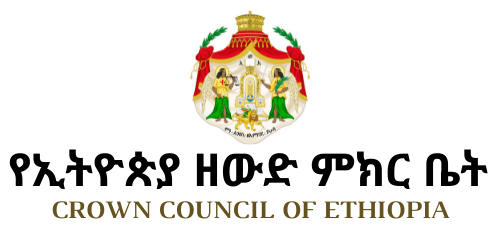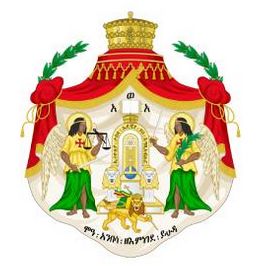The Editorial by HIH Prince Ermias Sahle-Selassie Haile-Selassie, President of the Crown Council of Ethiopia, for the July 31, 1999, edition of Negarit, the Crown newspaper. The statement was issued on June 29, 1999.
Famine, drought and ongoing poverty remain undiscussed, and apparently secondary issues when states are at war over such national and emotional issues of sovereignty and territorial integrity. Ethiopia, which has the highest rates of malnutrition in Africa, is yet again facing another famine with little publicity. Food insecurity, even at the best of times, is one of the most visible manifestations of poverty in Ethiopia. In a nation, which relies on subsistence farming and varying climatic factors, the problem is further compounded by inadequate focus on land protection, afforestation, water conservation, the development of human resources, a coherent policy on land reform and management and an exceptionally high birth rate.
The current war in Ethiopia seems on the surface to have had little impact on the economy, but over the short-term the conflict could have disasterous implications for the country as development aid becomes curtailed and the nation’s meagre resources become diverted to defense expenditures.
It was the lack of attention given to the famine which, in 1974, brought down the Imperial Government. Ethiopia became synonymous in the early 1980s with famine, as many more Ethiopians died from both manmade and natural disaster. What does our fate hold today and into the next century?
Ethiopians who live abroad as well as at home have a huge responsibility as citizens to ponder this shadow of death which afflicts millons of our countrymen too frequently. A problem of this magnitude cannot be tackled in a vacuum. The absence of peace and normalcy is a fundamental prerequisite. The fragility of our region is also an added insecurity, as we will be forced to live in the shadows of more wars to follow. How long are we going to be dependent on foreign donations to sustain our existence? We must measure what our sovereignty entails. If we are at others’ mercies for our survival then how are we truly free?
The Ethiopian administration must be held accountable for its decisions and must be pressured to address this life and death issue expeditiously. We Ethiopians have once more failed in the promise of feeding our people. We have the potential to be net exporters of food, yet millions of our people are vulnerable to the scrouge of famine. We continue to lose so many of our educated citizenary in whom the poor masses invested, and our young men and women are dying daily in the battlefields and through the silent war of poverty and disease.
We as citizens need to do our part by pressuring decisionmakers in Ethiopia to seek meaningful solutions to problems which have long-term consequences. We must also do our part today by turning to our communities, our churches and civic institutions to do our part in helping feed our people. We must educate our friends, our communities, policymakers and the international community that Ethiopia holds a greater promise than the continuous indignity of constantly being on the verge of death. We must pull together as human beings and each contribute according to our individual capacities. Let us become part of the solution by better understanding and confronting this problem which is haunting us periodically. Governments come and go but let us not make famine a permanent feature to our evolution. Let us seek ways to implement sustainable development through peaceful accomodation and co-existence.
Perhaps by uniting to confront the present famine, we will strengthen our unity to fight together for more durable solutions. Let us make a commitment now rather than be overcome by inaction and guilt once the problem becomes overwhelming. We all sympathized with the human suffering in Kosovo, and now the international community must be made aware that hunger is once again looming in our country and that we are prepared to do our part!








